Sir John Monash, Personal Files Book 6, 10 June - 12 July 1915, Part 11
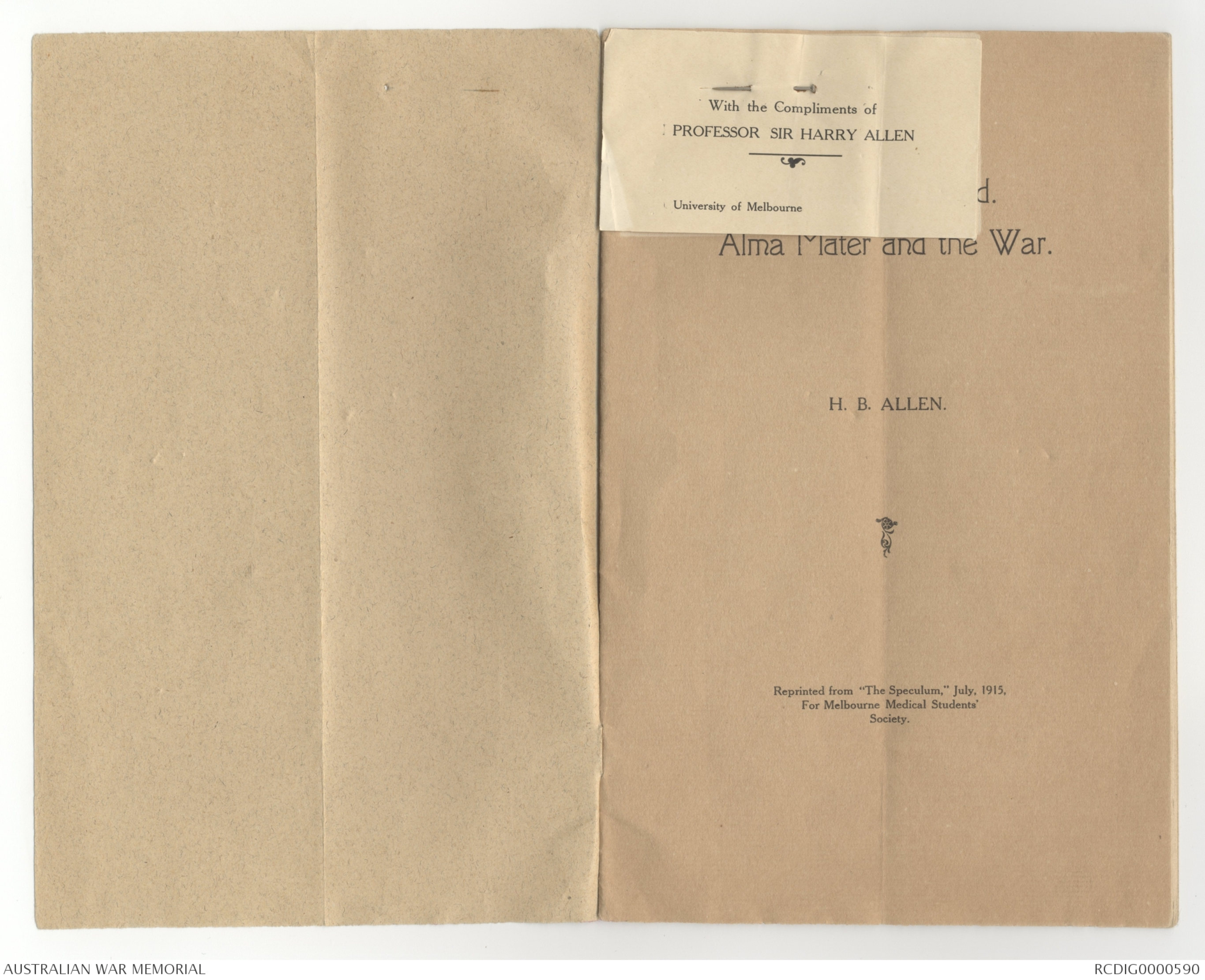
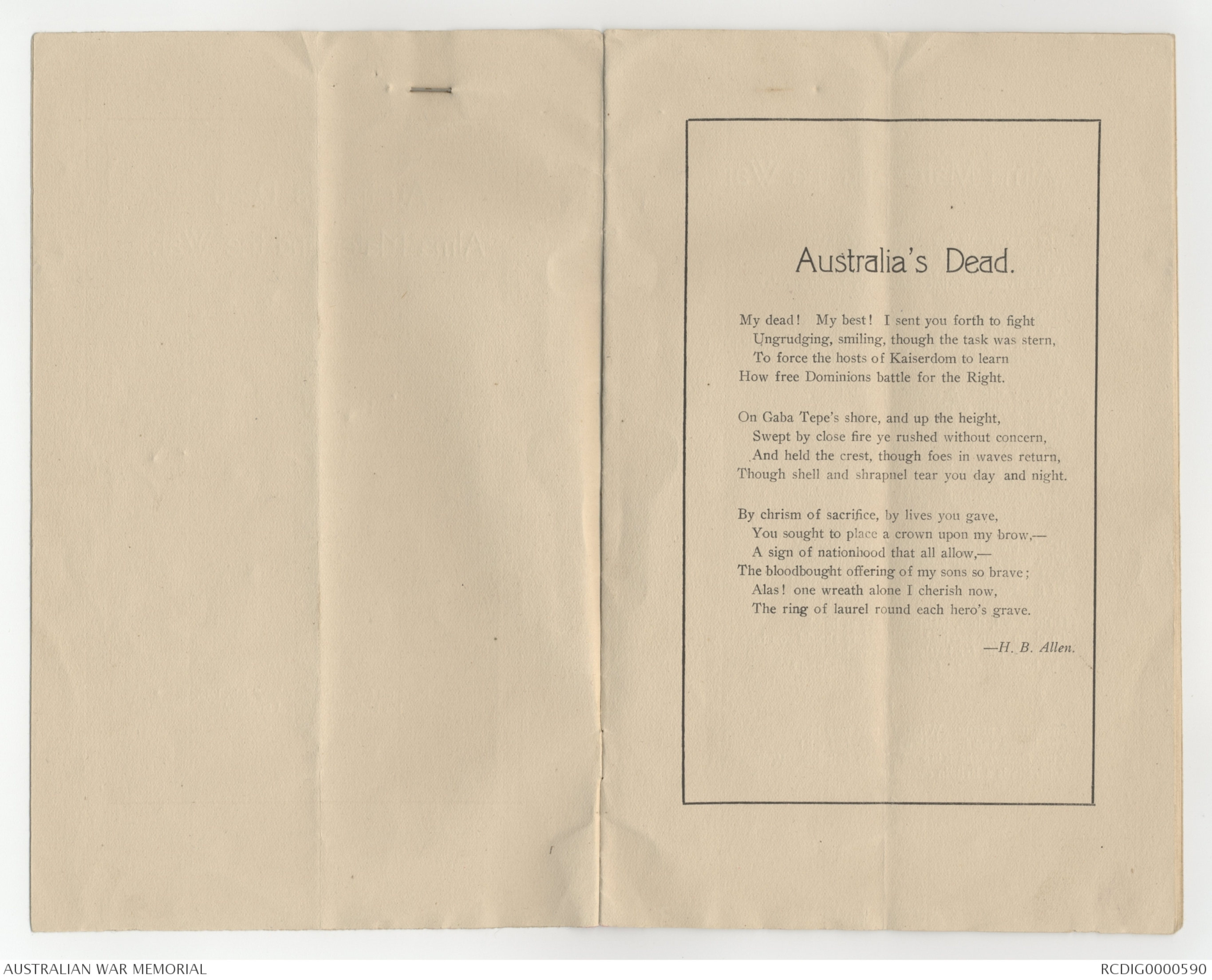
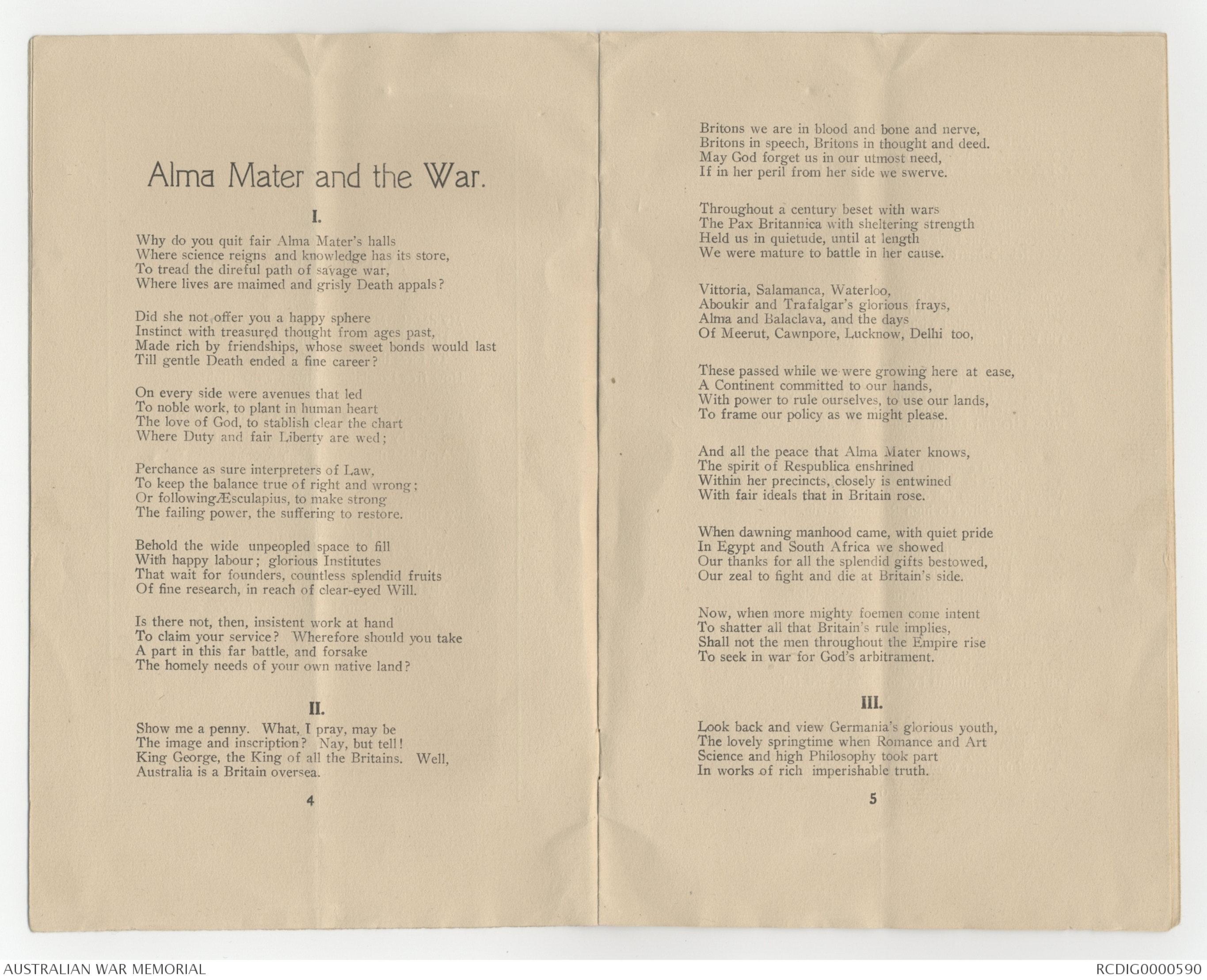
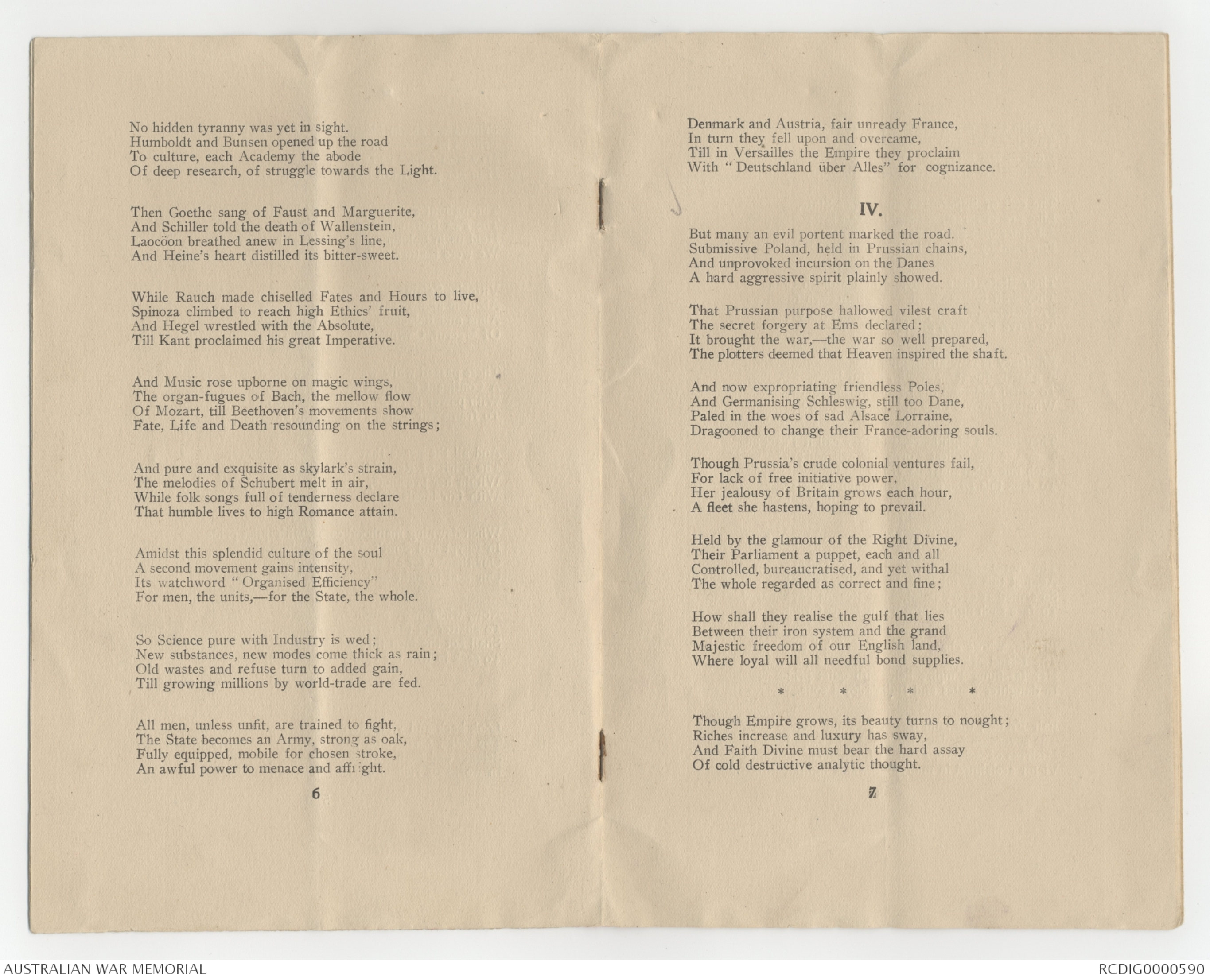
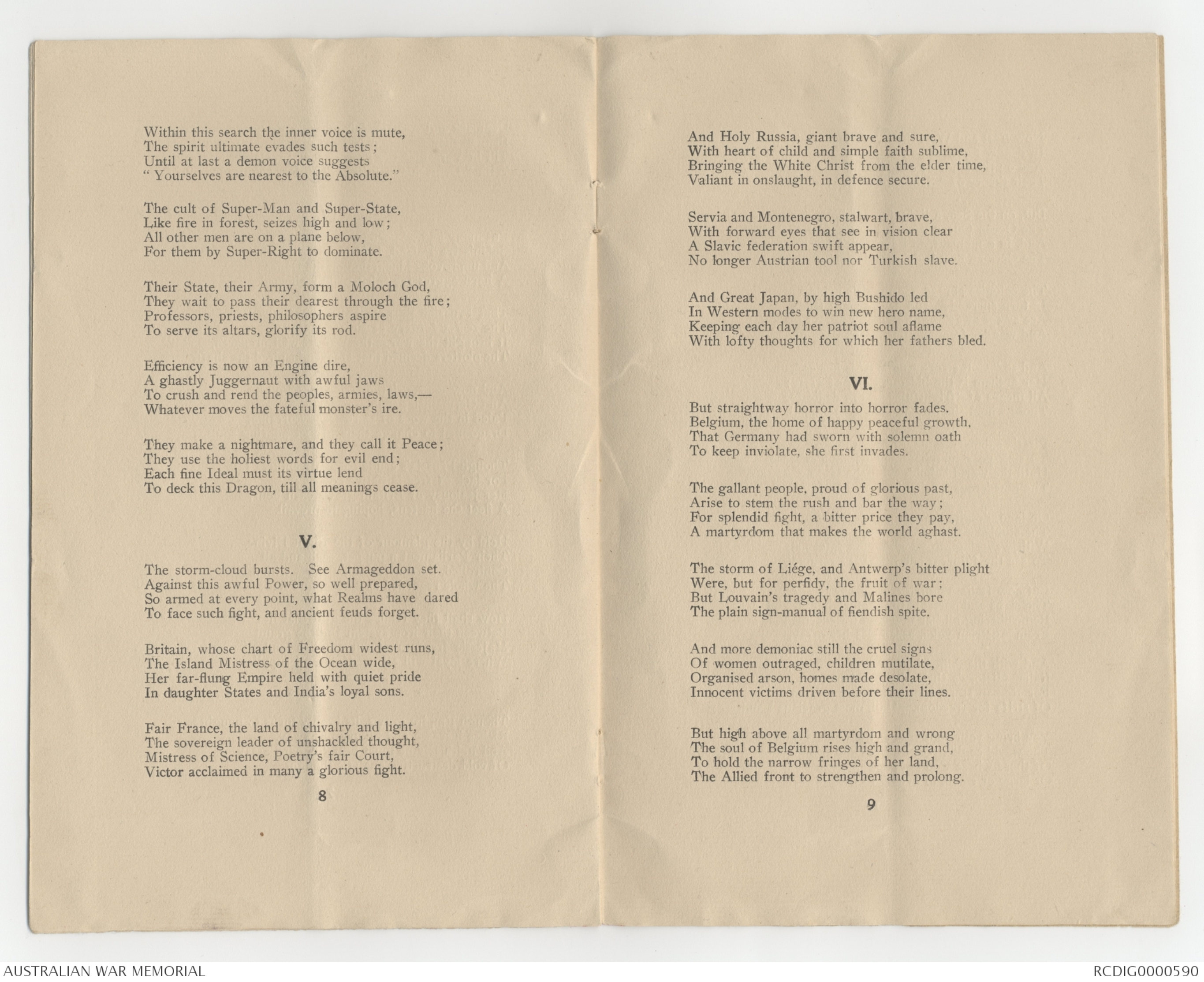
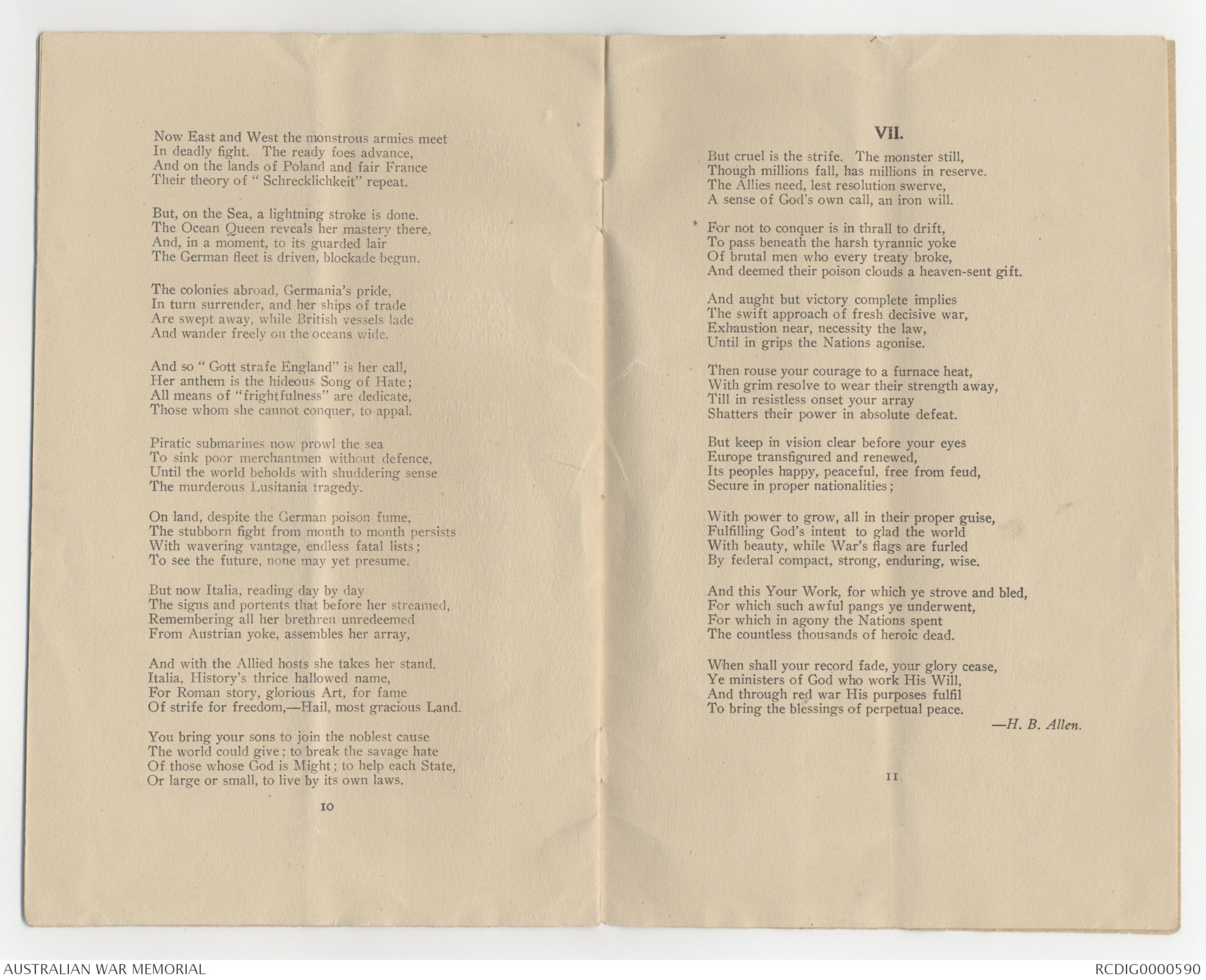
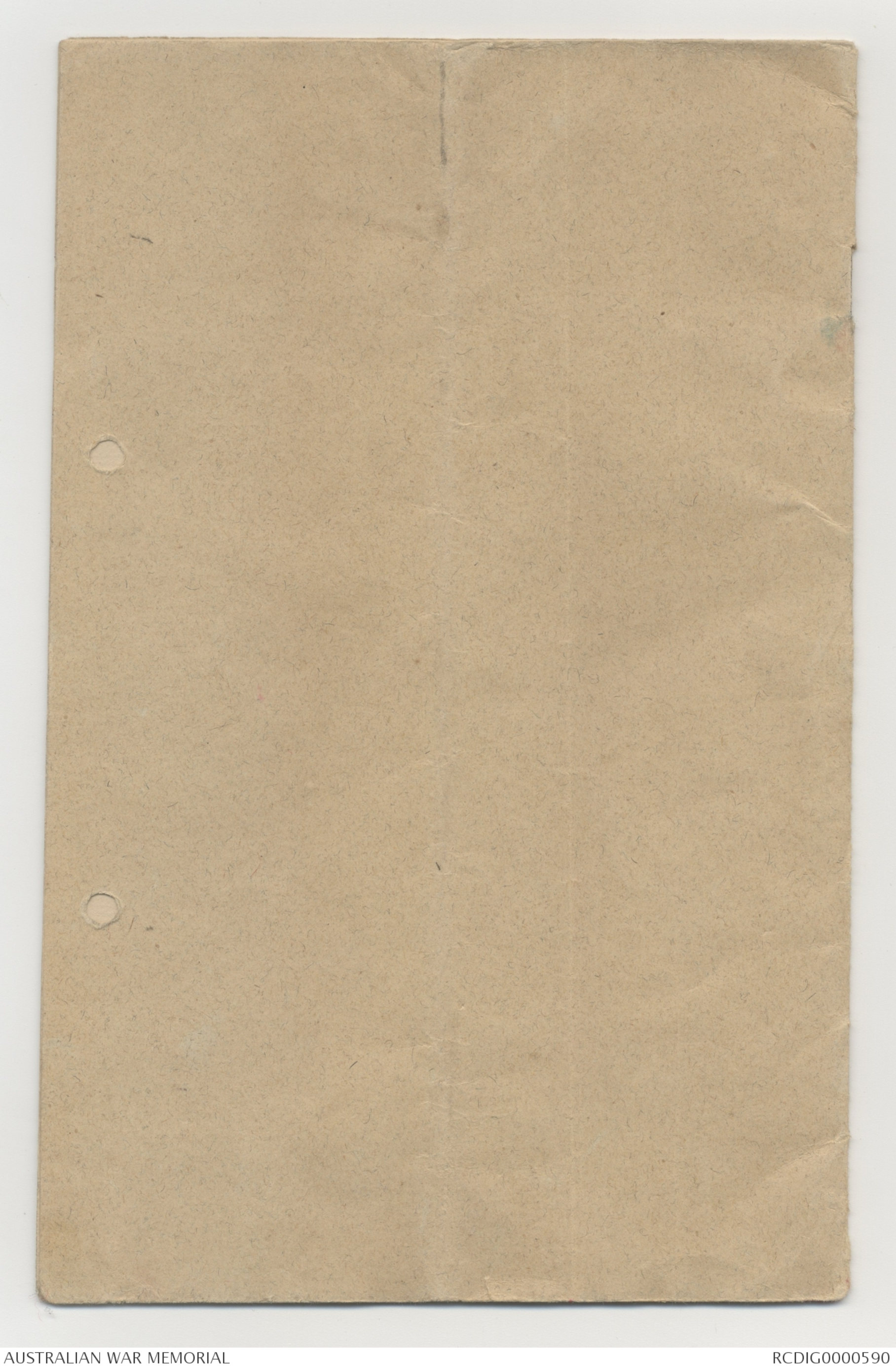
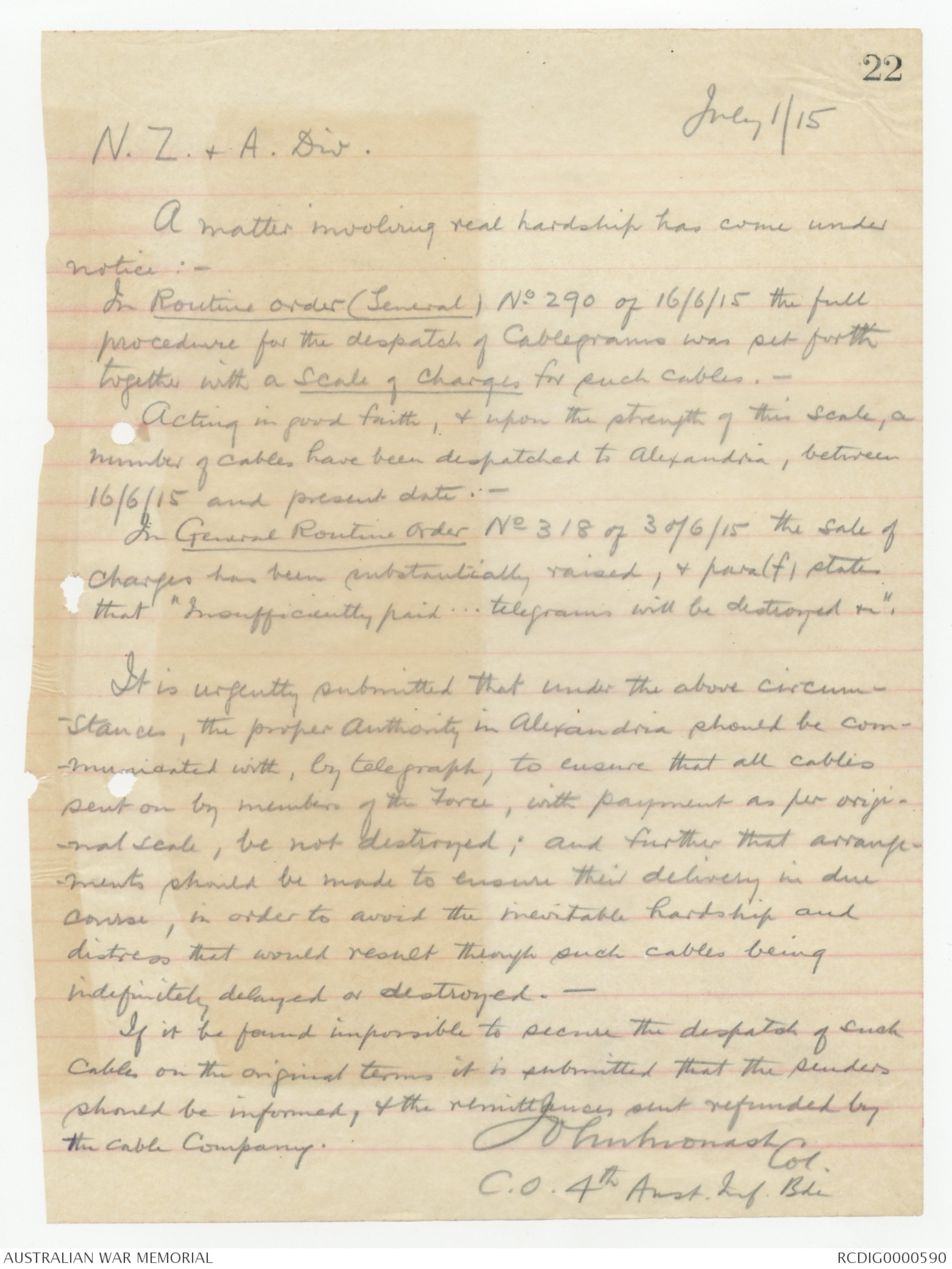
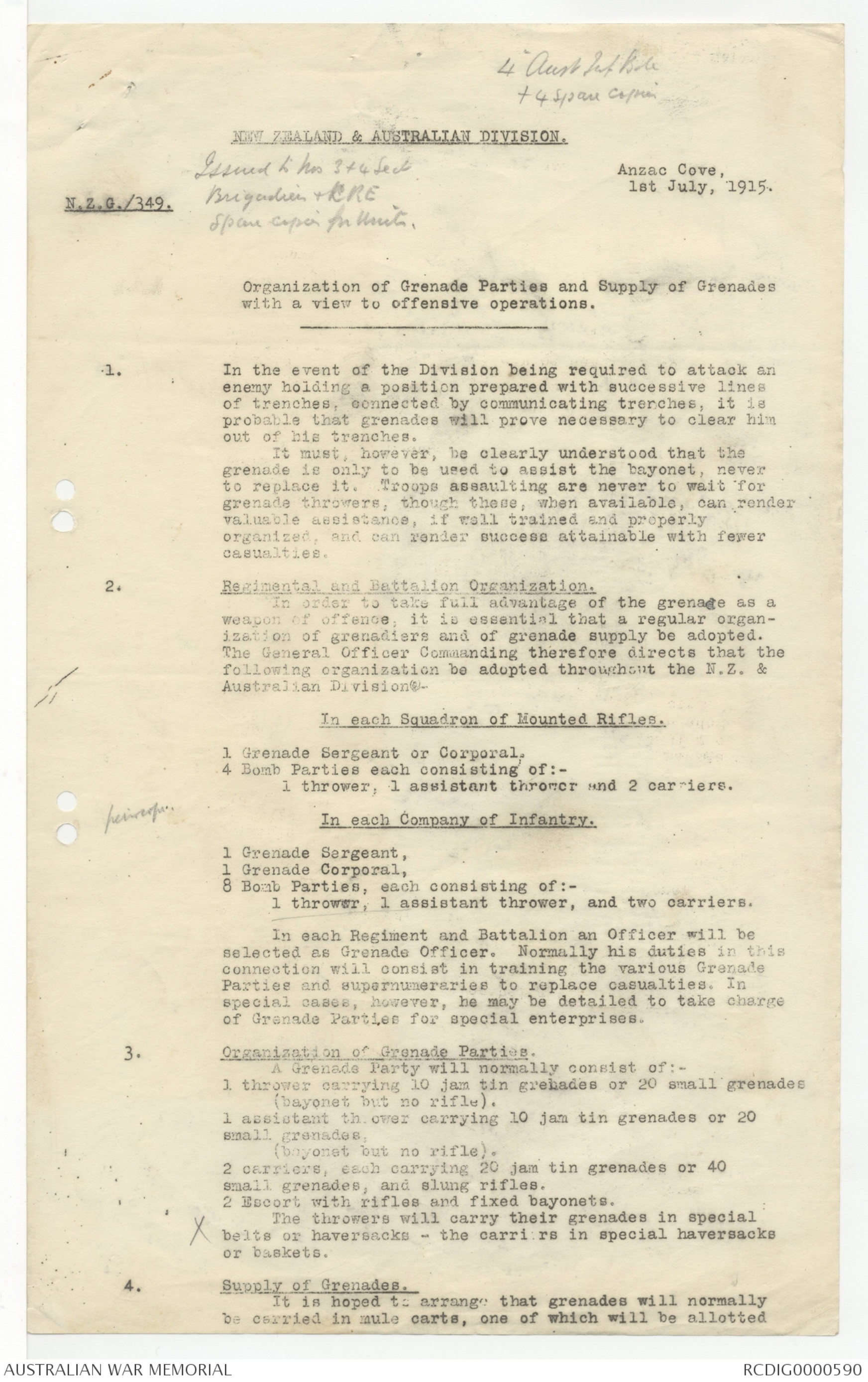
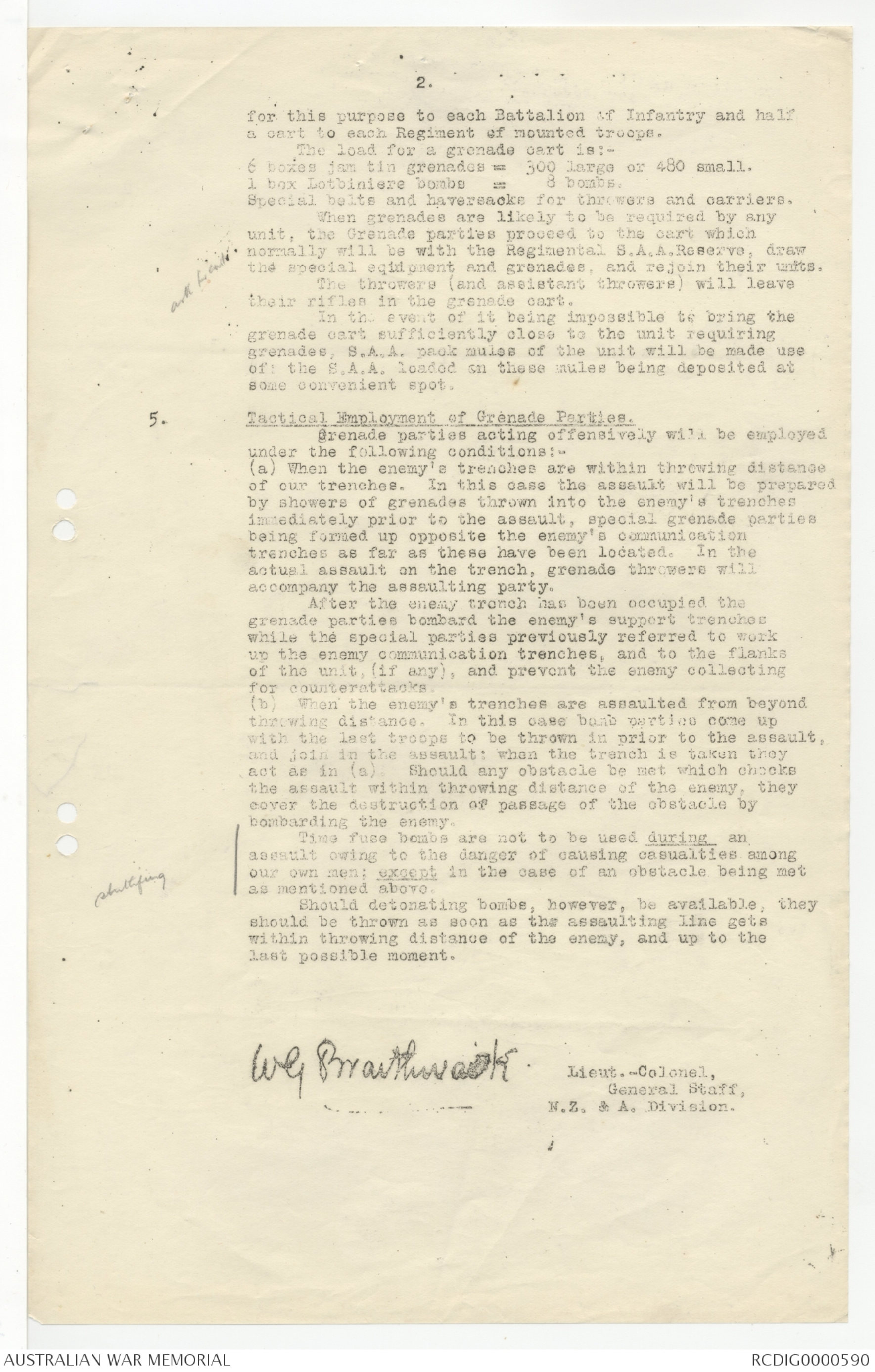
with the Compliments of
PROFESSOR SIR HARRY ALLEN
University of Melbourne
d.
Alma Mater and the War.
H. B. ALLEN.
Reprinted from "The Speculum", July, 1915.
For Melbourne Medical Students'
Society.
Australia's Dead.
My dead! My best! I sent you forth to fight
Ungrudging, smiling, though the task was stern,
To force the hosts of Kaiserdom to learn
How free Dominions for the Right.
On Gaba Tepe's shore, and up the height,
Swept by close fire ye rushed without concern,
And held the crest, though foes in waves return,
Though shell and shrapnel tear you day and night.
By chrism of sacrifice, by lives you gave,
You sought to place a crown upon my brow, -
A sign of nationhood that all allow, -
The bloodbought offering of my sons so brave;
Alas! one wreath alone I cherish now,
The ring of laurel round each hero's grave.
- H.B. Allen.
Alma Mater and the War.
1.
Why do you quit fair Alma Mater's halls
Where science reigns and knowledge has its store,
To tread the direful path of savage war,
Where lives are maimed and grisly Death appals?
Did she not offer you a happy sphere
Instinct with treasured thought from ages past,
Made rich by friendships, whose sweet bonds would last
Till gentle Death ended a fine career?
On every side were avenues that led
To noble work, to plant in human heart
The love of God, to stablish clear the chart
Where Duty and fair Liberty are wed;
Perchance as sure interpreters of Law,
To keep the balance true of right and wrong;
Or following AEsculapius, to make strong
The failing power, the suffering to restore.
Behold the wide unpeopled space to fill
With happy labour; glorious Institutes
That wait for founders, countless splendid fruits
Of fine research, in reach of clear-eyed Will.
Is there not, then, insistent work at hand
To claim your service? Wherefore should you take
A part in this far battle, and forsake
The homely needs of your own native land?
II.
Show me a penny. What, I pray, may be
The image and inscription? Nay, but tell!
King George, the King of all the Britains. Well,
Australia is a Britain oversea.
4
Britons we are in blood and bone and nerve,
Britons in speech, Britons in thought and deed.
May God forget us in our utmost need,
If in her peril from her side we swerve.
Throughout a century beset with wars
The Pax Britannica with sheltering strength
Held us in quietude, until at length
We were mature to battle in her cause.
Vittoria, Salamanca, Waterloo,
Aboukir and Trafalgar's glorious frays,
Alma and Balaclava, and the days
Of Meerut, Cawnpore, Lucknow, Delhi too.
These passed while we were growing here at ease,
A Continent committed to our hands,
With power to rule ourselves, to use our lands,
To frame our policy as we might please.
And all the peace that Alma Mater knows,
The spirit of Respublica enshrined
Within her precincts, closely is entwined
With fair ideals that in Britain rose.
When dawning manhood came, with quiet pride
In Egypt and South Africa we showed
Our thanks for all the splendid gifts bestowed,
Our zeal to fight and die at Britain's side.
Now, when more mighty foemen come intent
To shatter all that Britain's rule implies,
Shall not the men throughout the Empire rise
To seek in war for God's arbitrament.
III.
Look back and view Germania's glorious youth,
The lovely springtime when Romance and Art
Science and high Philosophy took part
In works of rich imperishable truth.
5
No hidden tyranny was yet in sight.
Humboldt and Bunsen opened up the road
To culture, each Academy the abode
Of deep research, of struggle towards the Light.
Then Goethe sang of Faust and Marguerite,
And Schiller told the death of Wallenstein,
Laocőon breathed anew in Lessing's line,
And Heine's heart distilled its bitter-sweet.
While Rauch made chiselled Fates and Hours to live,
Spinoza climbed to reach high Ethics' fruit,
And Hegel wrestled with the Absolute,
Till Kant proclaimed his great Imperative.
And Music rose upborne on magic wings,
The organ-fugues of Bach, the mellow flow
Of Mozart, till Beethoven's movements show
Fate, Life and Death resounding on the strings;
And pure and exquisite as skylark's strain,
The melodies of Schubert melt in air,
While folk songs full of tenderness declare
That humble lives to high Romance attain.
Amidst this splendid culture of the soul
A second movement gains intensity,
Its watchword "Organised Efficiency"
For men, the units, - for the State, the whole.
So Science pure with Industry is wed;
New substances, new modes come thick as rain;
Old wastes and refuse turn to added gain,
Till growing millions by world-trade are fed.
All men, unless unfit, are trained to fight,
The State becomes an Army, strong as oak,
Fully equipped, mobile for chosen stroke,
An awful power to menace and affright.
6
Denmark and Austria, fair unready France,
In turn they fell upon and overcame,
Till in Versailles the Empire they proclaim
With "Deutschland űber Alles" for cognizance.
IV.
But many an evil portent marked the road.
Submissive Poland, held in Prussian chains,
And unprovoked incursion on the Danes
A hard aggressive spirit plainly showed.
The Prussian purpose hallowed vilest craft
The secret forgery at Ems declared;
It brought the war, - the war so well prepared,
The plotters deemed that Heaven inspired the shaft.
And now expropriating friendless Poles,
And Germanising Schleswig, still too Dane,
Paled in the woes of sad Alsace Lorraine,
Dragooned to change their France-adoring souls.
Though Prussia's crude colonial ventures fail,
For lack of free initiative power,
Her jealousy of Britain grows each hour,
A fleet she hastens, hoping to prevail.
Held by the glamour of the Right Divine,
Their Parliament a puppet, each and all
Controlled, bureaucratised, and yet withal
The whole regarded as correct and fine;
How shall they realise the gulf that lies
Between their iron system and the grand
Majestic freedom of our English land,
Where loyal will all needful bond supplies.
∗ ∗ ∗ ∗
Though Empire grows, its beauty turns to nought;
Riches increase and luxury has sway,
And Faith Divine must bear the hard assay
Of cold destructive analytic thought.
7
Within this search the inner voice is mute,
The spirit ultimate evades such tests;
Until at last a demon voice suggests
"Yourselves are nearest to the Absolute."
The cult of Super-Man and Super-State,
Like fire in forest, seizes high and low;
All other men are on a plane below,
For them by Super-Right to dominate.
Their State, their Army, form a Moloch God,
They wait to pass their dearest through the fire;
Professors, priests, philosophers aspire
To serve its altars, glorify its rod.
Efficiency is now an Engine dire,
A ghastly Juggernaut with awful jaws
To crush and rend the peoples, armies, laws,-
Whatever moves the fateful monster's ire.
They make a nightmare, and they call it Peace;
They use the holiest words for evil end;
Each fine Ideal must its virtue lend
To deck this Dragon, till all meanings cease.
V.
The storm-cloud bursts. See Armageddon set.
Against this awful Power, so well prepared,
So armed at every point, what Realms have dared
To face such fight, and ancient feuds forget.
Britain, whose chart Freedom widest runs,
The Island Mistress of the Ocean wide,
Her far-flung Empire held with quiet pride
In daughter States and India's loyal sons.
Fair France, the land of chivalry and light,
The sovereign leader of unshackled thought,
Mistress of Science, Poetry's fair Court,
Victor acclaimed in many a glorious fight.
8
And Holy Russia, giant brave and sure,
With heart of child and simple faith sublime,
Bringing the White Christ from the elder time,
Valiant in onslaught, in defence secure.
Servia and Montenegro, stalwart, brave,
With forward eyes that see in vision clear
A Slavic federation swift appear,
No longer Austrian tool nor Turkish slave.
And Great Japan, by high Bushido led
In Western modes to win new hero name,
Keeping each day her patriot soul aflame
With lofty thoughts for which her fathers bled.
VI.
But straightway horror into horror fades.
Belgium, the home of happy peaceful growth,
That Germany had sworn with solemn oath
To keep inviolate, she first invades.
The gallant people, proud of glorious past,
Arise to stem the rush and bar the way;
For splendid fight, a bitter price they pay,
A martyrdom that makes the world aghast.
The storm of Liėge, and Antwerp's bitter plight
Were, but for perfidy, the fruit of war;
But Louvain's tragedy and Malines bore
The plain sign-manual of fiendish spite.
And more demoniac still the cruel signs
Of women outraged, children mutilate,
Organised arson, homes made desolate,
Innocent victims driven before their lines.
But high above all martyrdom and wrong
The soul of Belgium rises high and grand,
To hold the narrow fringes of her land,
The Allied front to strengthen and prolong.
9
Now East and West the monstrous armies meet
In deadly fight. The ready foes advance,
And on the lands of Poland and fair France
Their theory of "Schrecklichkeit" repeat.
But, on the Sea, a lightning stroke is done.
The Ocean Queen reveals her mastery there,
And, in a moment, to its guarded lair
The German fleet is driven, blockade begun.
The colonies abroad, Germania's pride,
In turn surrender, and her ships of trade
Are swept away, while British vessels lade
And wander freely on the oceans wide.
And so "Gott strafe England" is her call,
Her anthem is the hideous Song of Hate;
All means of "frightfulness" are dedicate,
Those whom she cannot conquer, to appal.
Piratic submarines now prowl the sea
To sink poor merchantmen without defence,
Until the world beholds with shuddering sense
The murderous Lusitania tragedy.
On land, despite the German poison fume,
The stubborn fight from month to month persists
With wavering vantage, endless fatal lists;
To see the future, none may yet presume.
But now Italia, reading day by day
The signs and portents that before her streamed,
Remembering all her brethren unredeemed
From Austrian yoke, assembles her array,
And with the Allied hosts she takes her stand.
Italia, History's thrice hallowed name,
For Roman story, glorious Art, for fame
Of strife for freedom, - Hail, most gracious Land.
You bring your sons to join the noblest cause
The world could give; to break the savage hate
Of those whose God is Might: to help each State,
Or large or small, to live by its own laws.
10
VII.
But cruel is the strife. The monster still,
Though millions fall, has millions in reserve.
The Allies need, lest resolution swerve,
A sense of God's own call, an iron will.
For not to conquer is in thrall to drift,
To pass beneath the harsh tyrannic yoke
Of brutal men who every treaty broke,
And deemed their poison clouds a heaven-sent gift.
And aught but victory complete implies
The swift approach of fresh decisive war,
Exhaustion near, necessity the law,
Until in grips the Nations agonise.
Then rouse your courage to a furnace heat,
With grim resolve to wear their strength away,
Till in resistless onset your array
Shatters their power in absolute defeat.
But keep in vision clear before your eyes
Europe transfigured and renewed,
Its peoples happy, peaceful, free from feud,
Secure in proper nationalities;
With power to grow, all in their proper guise,
Fulfilling God's intent to glad the world
With beauty, while War's flags are furled
By federal compact, strong, enduring, wise.
And this Your Work, for which ye strove and bled,
For which such awful pangs ye underwent,
For which in agony the Nations spent
The countless thousands of heroic dead.
When shall your record fade, your glory cease,
Ye ministers of God who work His Will,
And through red war His purposes fulfil
To bring the blessing of perpetual peace.
-H.B. Allen.
11
22
July 1/15
N.Z. & A.Div.
A matter involving real hardship has come under
notice: -
In Routine order (General) No 290 of 16/6/15 the full
procedure for the dispatch of Cablegrams was set forth
together with a Scale of Charges for such cables. -
Acting in good faith, & upon the strength of this scale, a
number of cables have been dispatched to Alexandria, between
16/6/15 and present date. -
In General Routine Order No 318 of 30/6/15 the Sale of
Charges has been substantially raised, & para(f) states
that "Insufficiently paid ... telegrams will be destroyed &c".
It is urgently submitted that under the above circumstances,
the proper Authority in Alexandria should be communicated
with, by telegraph, to ensure that all cables
sent on by members of the Force, with payment as per original
scale, be not destroyed; and further that arrangements
should be made to ensure their delivery in due
course, in order to avoid the inevitable hardship and
distress that would result through such cables being
indefinitely delayed or destroyed. -
If it be found impossible to secure the dispatch of such
Cables on the original terms it is submitted that the senders
should be informed, & the remittances sent refunded by
the Cable Company.
John Monash
Col.
C.O. 4th Aust. Inf. Bde
4th Aust Inf Bde
& 4 spare copies
NEW ZEALAND & AUSTRALIAN DIVISION.
Anzac Cove,
1st July, 1915.
N.Z.G. / 349.
Issued to Nos 3 & 4 Sect
Brigadier & CRE
spare copies for Units.
Organization of Grenade Parties and Supply of Grenades
with a view to offensive operations.
______________________________
1. In the event of the Division being required to attack an
enemy holding a position prepared with successive lines
of trenches, connected by communicating trenches, it is
probable that grenades will prove necessary to clear him
out of his trenches.
It must, however, be clearly understood that the
grenade is only to be used to assist the bayonet, never
to replace it. Troops assaulting are never to wait for
grenade throwers, though these, when available, can render
valuable assistance, if well trained and properly
organized, and can render success attainable with fewer
casualties.
2. Regimental and Battalion Organization.
In order to take full advantage of the grenade as a
weapon of offence, it is essential that a regular organization
of grenadiers and of grenade supply be adopted.
The General Officer Commanding therefore directs that the
following organization be adopted throughout the N.Z. &
Australian Division(s)-
In each Squadron of Mounted Rifles.
1 Grenade Sergeant or Corporal.
4 Bomb Parties each consisting of:-
1 thrower, 1 assistant thrower and 2 carriers.
[*periscope]
In each Company of Infantry.
1 Grenade Sergeant,
1 Grenade Corporal,
8 Bomb Parties, each consisting of: -
1 thrower, 1 assistant thrower, and two carriers.
In each Regiment and Battalion an Officer will be
selected as Grenade Officer. Normally his duties in this
connection will consist in training the various Grenade
Parties and supernumeraries to replace casualties. In
special cases, however, he may be detailed to take charge
of Grenade Parties for special enterprises.
3. Organization of Grenade Parties.
A Grenade Party will normally consist of:-
1 thrower carrying 10 jam tin grenades or 20 small grenades
(bayonet but no rifle).
1 assistant thrower carrying 10 jam tin grenades or 20
small grenades,
(bayonet but no rifle).
2 carriers, each carrying 20 jam tin grenades or 40
small grenades, and slung rifles.
2 Escort with rifles and fixed bayonets.
[*X*]
The throwers will carry their grenades in special
belts or haversacks - the carriers in special haversacks
or baskets.
4. Supply of Grenades.
It is hoped to arrange that grenades will normally
be carried in mule carts, one of which will be allotted
2.
for this purpose to each Battalion of Infantry and half
a cart to each Regiment of mounted troops.
The load for a grenade cart is: -
6 boxes jam tin grenades = 300 large or 480 small.
1 box Lotbiniere bombs = 8 bombs.
Special belts and haversacks for throwers and carriers.
When grenades are likely to be required by any
unit, the Grenade parties proceed to the cart which
normally will be with the regimental S.A.A. Reserve, draw
the special equipment and grenades, and rejoin their units.
[*art per carts*]
The throwers (and assistant throwers) will leave
their rifles in the grenade cart.
In the event of it being impossible to bring the
grenade cart sufficiently close to the unit requiring
grenades, S.A.A. pack mules of the unit will be made use
of: the S.A.A. loaded on these mules being deposited at
some convenient spot.
5. Tactical Employment of Grenade Parties.
Grenade parties acting offensively will be employed
under the following conditions: -
(a) When the enemy's trenches are within throwing distance
of our trenches. In this case the assault will be prepared
by showers of grenades thrown into the enemy's trenches
immediately prior to the assault, special grenade parties
being formed up opposite the enemy's communication
trenches as far as these have been located. In the
actual assault on the trench, grenade throwers will
accompany the assaulting party.
After the enemy trench has been occupied the
grenade parties bombard the enemy's support trenches
while the special parties previously referred to work
up the enemy communication trenches, and to the flanks
of the unit, (if any), and prevent the enemy, collecting
for counterattacks.
(b) When the enemy's trenches are assaulted from beyond
throwing distance. In this case bomb parties come up
with the last troops to be thrown in prior to he assault,
and join in the assault: when the trench is taken they
act as in (a). Should any obstacle be met which checks
the assault within throwing distance of the enemy, they
cover the destruction of passage of the obstacle by
bombarding the enemy.
[[*stultifing*??]]
Time fuse bombs are not to be used during an
assault owing to the danger of causing casualties among
our own men: except in the case of an obstacle being met
as mentioned above.
Should detonating bombs, however, be available, they
should be thrown as soon as the assaulting line gets
within throwing distance of the enemy, and up to the
last possible moment.
WG Braithwaite
Lieut.-Colonel,
General Staff,
N.Z. & A. Division.
 Marisa Bortolotto
Marisa BortolottoThis transcription item is now locked to you for editing. To release the lock either Save your changes or Cancel.
This lock will be automatically released after 60 minutes of inactivity.